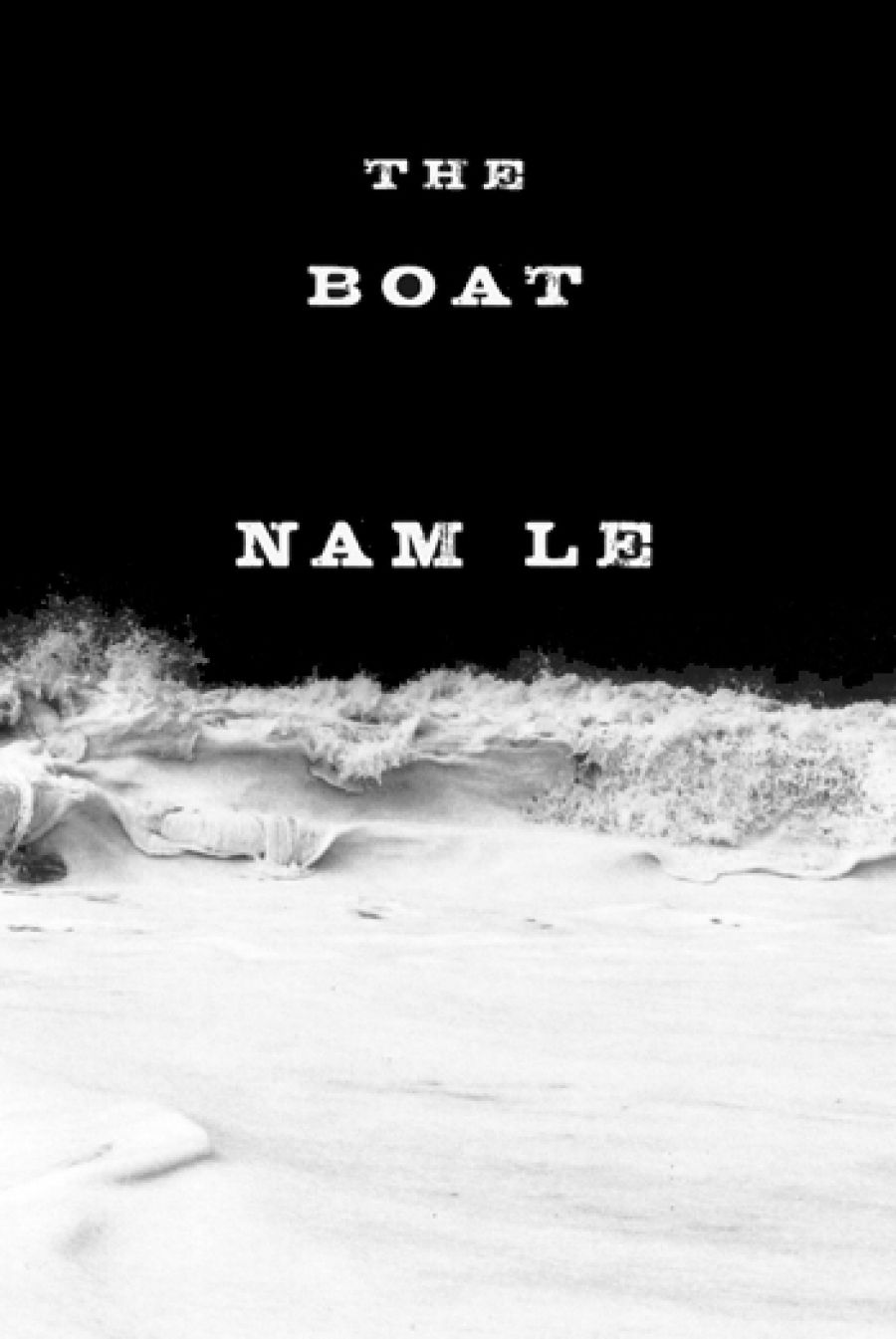
- Free Article: No
- Contents Category: Fiction
- Custom Article Title: Louise Swinn reviews <em>The Boat</em> by Nam Le
- Review Article: Yes
- Online Only: No
- Custom Highlight Text:
At a time when some fiction writers are busy defending their right to incorporate autobiographical elements, and some non-fiction writers are being charged with fabrication, it seems timely of Nam Le to begin his collection of stories with one that plays with notions of authenticity in literature ...
- Book 1 Title: The Boat
- Book 1 Biblio: Hamish Hamilton, $29.95 pb, 312 pp, 9780241015414
- Book 1 Readings Link: booktopia.kh4ffx.net/NZLjK
In the opening story, ‘Nam Le’ is being encouraged by his peers at the Iowa Writers’ Workshop to write about Vietnam. ‘Ethnic literature’s hot,’ they tell him. When a friend cynically suggests, ‘as long as there’s an interesting image or metaphor once in every this much text’, Le is setting the bar for himself, ensuring that the reader knows he is aware of exactly what kinds of criticisms can follow. Le is not going to take the easy way out. There are no lazy metaphors or stray images; while he is adept at finding the perfect phrase, he never simply resorts to phrase-making for its own sake. At the same time, the story manages to be a father–son tale, while exploring family ties and the tragedies that can lie within personal histories. It is a suitably strong opener.
‘Cartagena’, set in Colombia, shows us precisely what is at stake for a fourteen-year-old contract killer. Where the endings of short stories can so often be their downfall – too tidily rounded off, or merely truncated – ‘Cartagena’ exemplifies the perfect ending. If stories are music, the beat carries just as long as it needs to, and fades to a close.
‘Meeting Elise’ is very different. In New York, a middle-aged painter, mourning his dead lover, is preparing to meet his eighteen-year-old daughter, a cello prodigy about to make her début at Carnegie Hall. Le’s confidence with language continues to be on display: ‘I don’t realise until I’m a little ways down Fifth. It’s the height of fall. I turn around. Central Park is in bloom, spastic with colour – red, orange, green, yellow, purple, brown, gold.’
Then comes ‘Halflead Bay’, which, at almost eighty pages, is a novella in itself. This length suits Le’s style. With his mother’s health fading through the grips of multiple sclerosis, a teenager is trying to prepare for a big football game, to negotiate his love life and to deal with his kid brother. The closing scene is a fight so tightly wrought, so evenly paced, that one feels each punch. A lesser writer would have shied away, but Le confronts the scene head-on, and the result is mesmerising. Reading becomes catharsis. Here is a story not easily forgotten.
Next, in ‘Hiroshima’, without an authorial missing of a beat, a little girl hungrily awaits peace in a camp just before the fall of the atomic bomb. The language, suitably pared back and straightforward, only adds to the eerie knowing that evil looms: ‘Mrs Tamura does not sing that night. I lie on my back. Tomiko is on my left and Yukiyo is on my right. Everywhere there is the sound of sniffing.’
‘Tehran Calling’ is an unwaveringly original suspense story about war and a friendship between two women. It is followed by the final story, ‘The Boat’, about a Vietnamese refugee in a boat carrying twice its capacity, surrounded by other refugees, and sickness, and storms. It is the harrowing highlight in a book full of them.
Nam Le was born in Vietnam, moved to Australia, and currently lives in the United States, where longer short stories enjoy a greater vogue than they do here. Even the shortest of these stories far exceeds the length restrictions on most Australian short story competitions. Individually, the stories are vibrant, striking, alive; but collecting them has magnified their individual power. Linear reading of this compilation reinforces the sense that the author has compassion for his subjects, and this, in turn, draws out the compassion of the reader.
It takes courage to expose the empathy that lies at the heart of these stories. Reading The Boat, life itself is wholly experienced in the text. It serves as a powerful reminder that this is how we can live – that fiction, in the end, offers an authentic way to know other people.


Comments powered by CComment